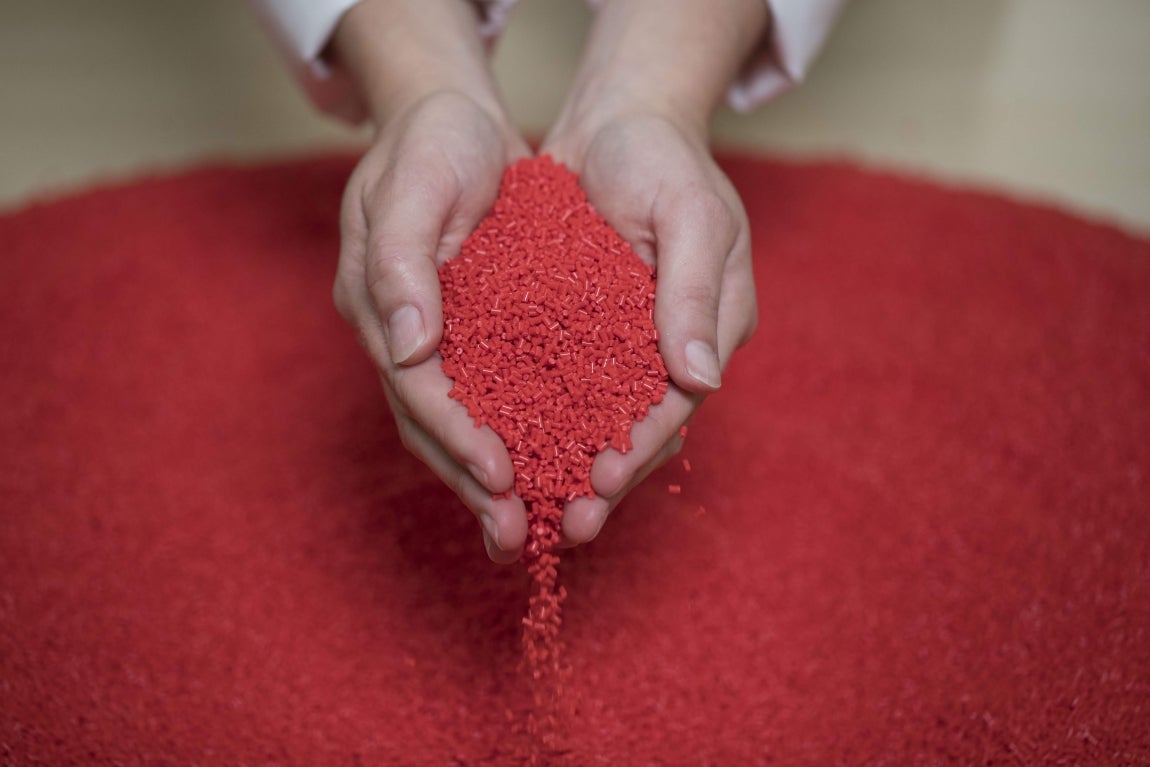
Faurecia and Veolia have signed an agreement to jointly develop ‘innovative compounds for automotive interior modules’, aiming to achieve an average of 30% of recycled content by 2025.
Through the partnership, the two companies say they will accelerate the deployment of sustainable interiors solutions implemented in instrument panels, door panels and centre consoles in Europe. Veolia will start the production of these secondary raw materials at its existing recycling sites in France starting from 2023.

Discover B2B Marketing That Performs
Combine business intelligence and editorial excellence to reach engaged professionals across 36 leading media platforms.
Faurecia says the use of recycled plastics is one of the key challenges for the ecological transformation of the automotive industry as it plays an important role in reducing CO2 emissions and improving the environmental performance of the car.
The strategic partnership will leverage the companies’ complementary competencies across sustainable compound formulations, stringent automotive architecture requirements, sourcing and innovative treatment of industrial and post-consumer plastic waste.
Veolia has been providing polypropylene compounds to the automotive industry in France for over five years and the new project with Faurecia will allow Veolia to expand its automotive product range to vehicle interiors.
In 2011, Faurecia was the first automotive supplier to introduce a complete range of bio-composite cockpit solutions with NAFILean. More than a decade later and in around 13 million vehicles, these products’ CO2 footprint is 28% lower than that of conventional all-plastic counterparts.
Faurecia CEO Patrick Koller said: “As an automotive supplier with an industry-leading portfolio in sustainable materials, we are uniquely positioned to provide innovative solutions to carmakers and their customers. By combining our innovation and industrial forces with Veolia, we will accelerate the introduction of breakthrough sustainable materials and their time-to-market, as well as contributing to reducing plastic waste and strengthening the circular economy. This agreement will also strongly contribute to Faurecia’s roadmap towards CO2 neutrality for scope 3, based on the principles of using less, using better and using longer.”
Estelle Brachlianoff, CEO at Veolia said: “As demand for recycled plastic increases across all sectors in the context of resource scarcity, there is a need to recycle more plastic waste streams. The collaboration with Faurecia allows us to increase our supply of secondary raw materials to the automotive industry through the development of high value-added compounds. These sustainable interior solutions will also be a strong contributor to sustainable mobility, which is at the heart of the ecological transformation. Active alongside the entire recycling value chain, Veolia is growing its plastic recycling capacities with continuous investment in the industrialisation and expansion of our existing recycling sites in France and globally, with the objective to reach 1 billion € turnover by 2025.”
Faurecia created a cross-business group Sustainable Materials division in 2021 to develop and manufacture new materials. This division aims to offer a complete low-CO2 cockpit and even CO2 negative materials, in order to support OEMs’ sustainability objectives.






